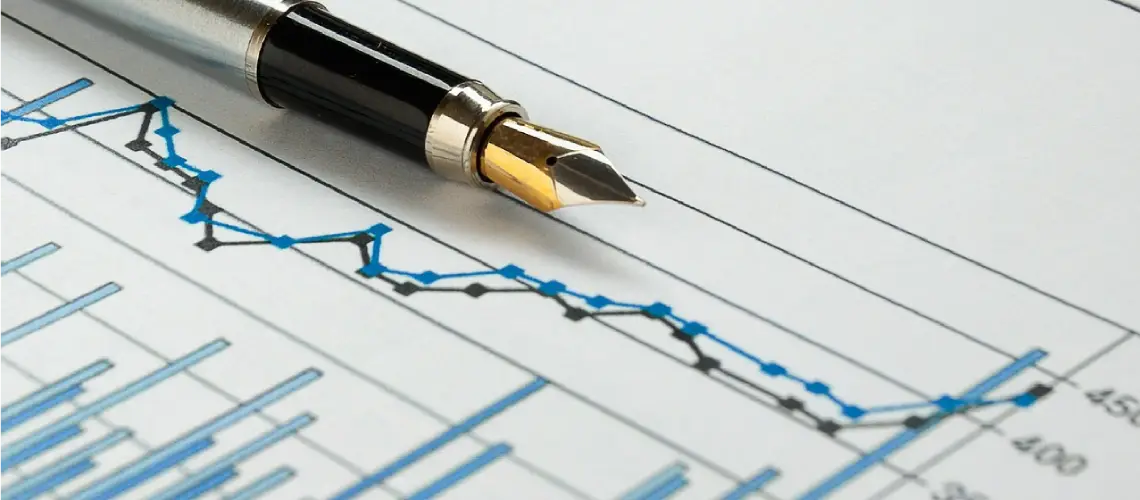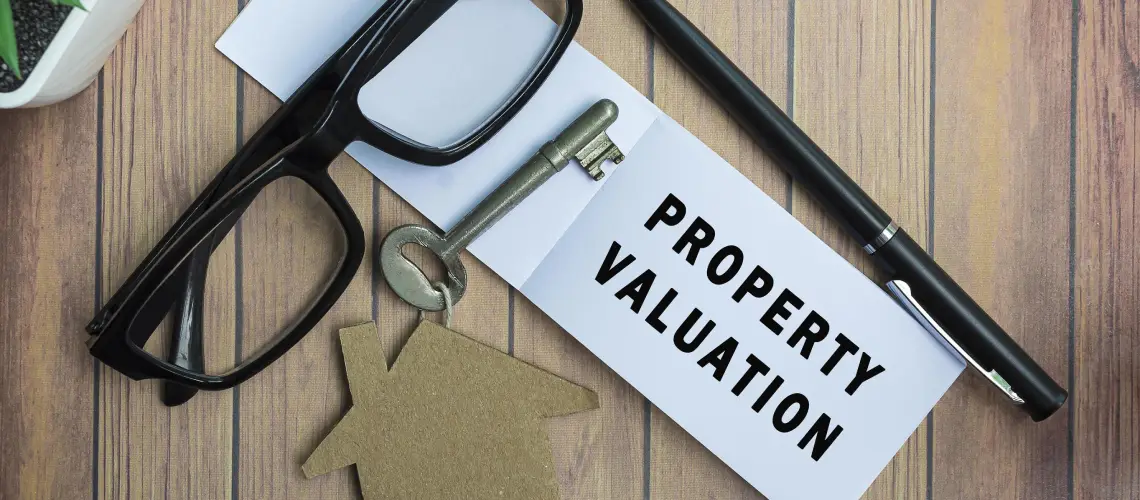Leading Property Valuations
Our expert valuers provide detailed reports tailored to your needs
Welcome to
Cherub Properties
Our Commitment to Excellence

Why Choose Cherub Properties?
- Expertise in Melbourne Market: Our valuers are not only qualified professionals but also possess an in-depth understanding of the Melbourne property market.
- Comprehensive Reports: We deliver thorough valuation reports that include detailed market analysis, property comparisons, and an assessment of the property’s condition.
- Client-Centric Approach: At Cherub Properties, we believe in a client-first philosophy. We work closely with you to understand your unique needs and objectives.
Valuation Insights

Unlocking Growth with Business Valuation Brisbane
Understanding the true value of your business is a cornerstone of success. For enterprises in Brisbane, a professional business valuation can unlock opportunities, drive growth, and provide critical insights for informed decision-making. This guide explores the importance of business valuation, the methodologies used, and why it’s vital for Brisbane’s business owners.
What is Business Valuation?
Business valuation is the process of determining a company’s economic worth. It considers financial performance, market trends, assets, and liabilities. For Brisbane businesses, local market conditions and industry-specific factors also influence valuation outcomes.
Why Brisbane Businesses Need Valuation Services
1. Selling Your Business
A detailed valuation ensures you set a competitive price, attracting buyers while maximising your return on investment.
2. Securing Investments
Investors need confidence in their potential returns. A professional valuation demonstrates your business’s value and growth potential.
3. Strategic Planning
Valuation insights highlight strengths and weaknesses, guiding effective strategies for growth and sustainability.
4. Mergers and Acquisitions
During mergers or acquisitions, valuations provide a clear foundation for negotiations and fair terms.
5. Succession Planning
A valuation is essential for seamless transitions in family businesses or preparing for retirement.
Methods of Business Valuation
Professionals use various methodologies to calculate a business’s worth. Here are the most common approaches:
1. Market-Based Valuation
This method compares your business to similar companies recently sold in Brisbane or the broader market.
Pros:
- Reflects real-time market trends.
- Easy for stakeholders to understand.
Cons:
- Relies on the availability of comparable data.
2. Income-Based Valuation
This approach evaluates future earning potential using techniques like:
- Discounted Cash Flow (DCF): Projects future cash flows and discounts them to present value.
- Capitalisation of Earnings: Uses current earnings and a capitalisation rate to determine value.
Pros:
- Future-oriented and ideal for businesses with stable revenue.
Cons:
- Heavily dependent on accurate financial projections.
3. Asset-Based Valuation
This method calculates a business’s value by subtracting liabilities from its tangible and intangible assets.
Pros:
- Straightforward and effective for asset-heavy businesses.
Cons:
- Does not consider future earning potential.
Why Local Expertise Matters in Brisbane
Brisbane’s business landscape is shaped by its thriving industries, including tourism, real estate, and technology. Partnering with local valuation experts ensures:
- Market Knowledge: Insights into Brisbane’s economic trends and industry benchmarks.
- Tailored Reports: Valuations customised to reflect the unique characteristics of your business.
- Regulatory Compliance: Expertise in local laws and standards.
For trusted services, Business Valuation Brisbane provides expert guidance tailored to your needs.
Benefits of Professional Business Valuation
Working with valuation professionals offers numerous advantages:
- Accurate Insights: Reliable data for critical decisions.
- Negotiation Strength: A strong position in discussions with buyers, investors, or partners.
- Strategic Clarity: Clear guidance for planning and growth.
How to Get Started with Business Valuation
Here’s what to expect during the valuation process:
- Initial Consultation: Discuss your goals and gather relevant data.
- Analysis: Review financial records, market conditions, and operational details.
- Valuation Calculation: Apply the appropriate methodology to assess value.
- Report Delivery: Receive a comprehensive report with actionable insights.
Real-Life Applications of Business Valuation in Brisbane
Example 1: Attracting Investors
A Brisbane-based tech start-up used a valuation report to secure funding for product development and market expansion.
Example 2: Business Sale
A family-owned retail business leveraged a professional valuation to set a fair price, ensuring a smooth sale.
Example 3: Growth Strategy
A local hospitality group relied on valuation insights to identify profitable locations for new venues.
Final Thoughts
A professional business valuation Brisbane is an invaluable tool for businesses aiming to grow, secure funding, or plan for the future. By understanding your company’s value, you gain the clarity and confidence to make informed decisions and seize new opportunities.
Partner with Business Valuation Brisbane to access expert services tailored to your needs. Take the first step today towards unlocking your business’s full potential in Brisbane’s vibrant market.

Market Rent Valuation in Melbourne
As Melbourne continues to grow as a property hotspot, rental prices have become a key factor in determining investment returns. Whether you’re a landlord, investor, or tenant, understanding market rent valuation is critical. This article will dive deep into what market rent valuation is, why it’s important, and how property valuers in Melbourne determine an accurate market rent estimate for your property.
What is Market Rent Valuation?
Market rent valuation refers to the process of determining the fair rental price of a property based on current market conditions. A certified property valuer in Melbourne evaluates various factors such as property location, condition, demand, and recent rental transactions in the area to arrive at a fair and accurate rental price.
For property investors, understanding the potential rental income is crucial for forecasting returns and ensuring their property is competitive in the market.
Why is Market Rent Valuation Important in Melbourne?
Melbourne’s dynamic property market, influenced by population growth, urban development, and fluctuating demand, means that rental prices can vary significantly from one suburb to another. For landlords and property investors, setting the right rental price is essential to attract tenants, minimise vacancy rates, and maximise investment returns.
On the other hand, for tenants, market rent valuation ensures they are paying a fair price for their accommodation. Having a professional valuer conduct this assessment gives both landlords and tenants a transparent and unbiased rent estimate, which helps avoid disputes and creates long-term rental agreements.
Key Factors Property Valuers Consider in Melbourne’s Market Rent Valuation
- Location and Surroundings
Location plays a pivotal role in determining rental prices. Properties in highly sought-after areas like the CBD, Southbank, and Carlton will generally attract higher rents than those in outer suburbs. Valuers assess proximity to public transport, schools, shopping centres, parks, and other amenities, as these factors drive tenant demand. - Property Type and Size
The type of property (apartment, townhouse, or house) and its size significantly influence rental values. A spacious three-bedroom home will typically have a higher rental value than a one-bedroom apartment. Valuers will also assess the property’s layout and functionality when estimating rent. - Condition and Age of the Property
The condition of the property, including any recent renovations or upgrades, is taken into account. Older properties in need of repairs may have a lower rental value compared to newly built or well-maintained properties. Features such as modern appliances, heating, cooling, and energy efficiency can also boost rental estimates. - Market Trends and Comparable Rentals
Property valuers will analyse current rental trends and compare similar properties in the area. This involves looking at recent rental agreements for properties of comparable size, location, and condition. By examining these comparable rentals, valuers can gauge where the property sits in the market and suggest an appropriate rental price. - Vacancy Rates and Demand
Melbourne’s rental market can shift rapidly, with vacancy rates fluctuating across different suburbs. High demand areas with low vacancy rates can command higher rents, while areas with oversupply may need to lower rental prices to remain competitive. Valuers consider these market dynamics when providing rent estimates.
How Professional Valuers Conduct a Market Rent Valuation
A professional property valuer in Melbourne will typically follow a structured process to ensure accuracy and transparency. Here’s a brief overview:
- Initial Property Inspection
The first step is conducting a thorough on-site inspection. The valuer assesses the property’s condition, size, and features, taking detailed notes on aspects such as structural integrity, interior design, and external factors like the garden or outdoor space. - Market Research
Next, the valuer gathers data on comparable rental properties in the area. This includes looking at recent rental agreements, average rents, and market demand in the suburb. Valuers use databases and rental platforms to source accurate data for comparison. - Analysis and Reporting
Once the research is complete, the valuer analyses the collected data, factoring in the property’s unique characteristics and current market trends. The final step is compiling the information into a detailed report, outlining the recommended market rent. - Presentation of the Report
The market rent valuation report is presented to the property owner, detailing how the estimate was calculated and providing insights into the local rental market. This allows landlords to make informed decisions about setting a competitive rental price.
How Often Should You Get a Market Rent Valuation?
With the Melbourne rental market constantly evolving, it’s a good idea to get a market rent valuation at least once every 12 to 18 months. This ensures that your rental income aligns with current market conditions. For properties in high-demand areas or those experiencing rapid growth, more frequent valuations may be required.
Benefits of Accurate Market Rent Valuation
- Maximising Rental Income
An accurate valuation ensures you are charging a competitive price that maximises your rental income while avoiding vacancy issues. Setting the rent too high may deter potential tenants, while setting it too low could mean missing out on significant returns. - Minimising Disputes with Tenants
A professional market rent valuation provides an objective and unbiased rent estimate, reducing the risk of disputes between landlords and tenants over rent increases or decreases. - Informed Decision-Making
With a detailed rent valuation report in hand, property owners can make informed decisions about property investments, rental increases, or renovations to boost rental income.
Conclusion
Market rent valuation is a crucial aspect of property ownership, especially in a competitive market like Melbourne. Whether you are a landlord, property investor, or tenant, understanding the value of a professional rent valuation helps you navigate the rental landscape with confidence. By considering location, property condition, market trends, and comparable rentals, a qualified property valuer Melbourne ensures that landlords set appropriate rent prices and tenants pay fair market rates.
If you’re a Melbourne property owner looking for an accurate market rent valuation, consider engaging a certified property valuer to get the most reliable estimate for your investment.

Understanding the Property Valuation Process in Melbourne: A Guide for Homeowners
Property valuation is a critical aspect of real estate transactions, yet many homeowners in Melbourne may not fully understand the process. Whether you’re buying, selling, refinancing, or managing your property portfolio, grasping how property valuations in Melbourne work can help you navigate the market with confidence. This guide will walk you through the property valuation process in Melbourne, from start to finish.
What is a Property Valuation?
A property valuation is an assessment of a property’s value, conducted by a qualified valuer. The valuation is based on a variety of factors, including the property’s location, condition, and current market trends. In Melbourne, property valuations are used for a range of purposes, from securing a mortgage to settling a legal dispute.
Why Property Valuations are Important
Property valuations are essential for several reasons:
- Buying or Selling: When buying or selling a property, a valuation provides a benchmark for pricing. It ensures that the property is priced in line with its true market value.
- Refinancing: Lenders require a current property valuation to determine the amount of money they are willing to lend. A higher valuation can result in more favourable loan terms.
- Taxation and Legal Matters: Valuations are often required for taxation purposes, such as calculating capital gains tax or resolving inheritance disputes.
- Investment Decisions: Investors use valuations to assess the potential return on investment for a property. Understanding a property’s value helps in making informed investment decisions.
Steps Involved in the Property Valuation Process
The property valuation process involves several key steps. Here’s what you can expect when having your property valued in Melbourne:
- Initial Consultation: The process begins with an initial consultation where the valuer gathers information about the property. This may include details about the property’s size, age, condition, and any recent renovations.
- On-Site Inspection: The valuer will conduct an on-site inspection to assess the property’s condition. During the inspection, the valuer will evaluate the structural integrity, layout, and any unique features of the property.
- Market Analysis: The valuer will perform a market analysis, comparing the property to similar properties that have recently sold in the area. This step helps the valuer determine the property’s market value.
- Valuation Report: After the inspection and analysis, the valuer will compile a detailed valuation report. The report includes an assessment of the property’s value, based on the factors mentioned above.
- Review and Finalisation: The final step involves reviewing the valuation report with the homeowner. If any discrepancies or concerns arise, they can be addressed before the report is finalised.
Factors that Influence Property Valuations
Several factors influence the outcome of a property valuation in Melbourne:
- Location: The property’s location, including proximity to schools, shops, and public transport, is a major factor in determining its value.
- Condition of the Property: The overall condition of the property, including the quality of construction, maintenance, and any recent renovations, will impact the valuation.
- Market Trends: Current market trends, such as supply and demand, also play a significant role in property valuations.
- Comparable Sales: The valuer will consider recent sales of similar properties in the area to help determine the property’s market value.
How to Prepare for a Property Valuation
Preparing your property for a valuation can help ensure the best possible outcome. Here are some tips for getting ready:
- Tidy Up: A clean, well-maintained property makes a positive impression. Ensure that both the interior and exterior are tidy and presentable.
- Complete Repairs: Address any minor repairs before the valuation. Fixing leaky taps, cracked tiles, or broken windows can improve the property’s overall condition.
- Provide Documentation: Have any relevant documentation ready, such as recent renovation records, land surveys, or building permits. This information can be valuable to the valuer.
- Be Honest: Be upfront with the valuer about any issues or concerns with the property. Transparency helps ensure an accurate assessment.
Conclusion
Understanding the property valuation process in Melbourne is essential for homeowners who want to make informed decisions in the real estate market. By knowing what to expect and how to prepare, you can ensure that your property is valued accurately and fairly. Whether you’re planning to sell, refinance, or simply want to know your home’s value, a professional property valuation is the key to unlocking the true potential of your property.

How to Maximise Your Property’s Value with Professional Valuations in Melbourne
In Melbourne’s competitive real estate market, maximising your property’s value is crucial whether you’re selling, refinancing, or simply building equity. Professional property valuations provide a clear understanding of your property’s worth and highlight areas for improvement that can boost its value. This article explores how you can maximise your property’s value through professional valuations in Melbourne.
The Role of Professional Valuations in Increasing Property Value
Professional property valuations are not just about determining current market value—they are also a strategic tool for increasing your property’s worth. Here’s how:
- Identifying Value-Boosting Improvements: A professional valuer can identify aspects of your property that, if improved, could significantly increase its value. This might include renovations, landscaping, or even small cosmetic changes.
- Strategic Planning: Understanding your property’s value enables you to plan strategically, whether you’re considering selling, renting, or holding the property for future appreciation.
- Accurate Pricing: If you’re selling, an accurate valuation ensures that you price your property competitively, attracting the right buyers without underselling.
Key Factors Valuers Consider When Assessing Property Value
To maximise your property’s value, it’s essential to understand what professional valuers look for during their assessments. Here are some of the key factors:
- Location and Neighbourhood: The property’s location, including the neighbourhood’s reputation, proximity to amenities, and future development plans, significantly influences its value.
- Property Condition and Age: The overall condition of the property, including the age of the building, the state of the roof, plumbing, electrical systems, and any recent renovations, will impact the valuation.
- Size and Layout: The size of the property, both in terms of land area and building footprint, as well as the layout and functionality of the space, are critical in determining value.
- Market Demand: Current market demand for similar properties in the area will affect the valuation. In high-demand areas, properties are likely to receive higher valuations.
- Legal and Zoning Considerations: Zoning laws, land use restrictions, and any legal encumbrances can impact the value of a property.
How to Prepare Your Property for a Higher Valuation
Maximising your property’s value starts with preparation. Here are some steps you can take to ensure your property is valued at its highest potential:
- Make Necessary Repairs: Before the valuation, address any necessary repairs, such as fixing leaks, repairing damaged walls, or updating outdated electrical systems. A well-maintained property will receive a higher valuation.
- Enhance Curb Appeal: First impressions matter. Improve your property’s curb appeal by maintaining the lawn, trimming hedges, and ensuring the exterior is clean and inviting.
- Upgrade Key Areas: Consider upgrading key areas of the property, such as the kitchen or bathroom. These areas are often focal points for buyers and can significantly boost your property’s value.
- Declutter and Depersonalise: Remove personal items and declutter the space to make it appear larger and more appealing. A clean, neutral space allows valuers to better assess the property’s potential.
- Gather Documentation: Prepare any relevant documentation, such as recent renovations, land surveys, or property improvements. This information helps the valuer make a more accurate assessment.
The Benefits of Multiple Valuations
If you’re serious about maximising your property’s value, consider obtaining multiple valuations from different professionals. This provides a broader perspective on your property’s worth and ensures you’re not missing any potential value-boosting opportunities.
Conclusion
Professional property valuations Melbourne are an essential tool for maximising your property’s value in the city’s competitive market. By understanding what valuers look for and preparing your property accordingly, you can ensure that your property is valued at its highest potential. Whether you’re planning to sell, refinance, or simply build equity, a professional valuation in Melbourne is the first step towards achieving your property goals.

The Importance of Accurate Property Valuations in Melbourne’s Real Estate Market
In Melbourne’s dynamic real estate market, property valuations play a pivotal role. Whether you’re buying, selling, or investing, having an accurate understanding of a property’s value is essential. This article explores the importance of accurate property valuations in Melbourne, the factors that influence property values, and how to ensure you receive a reliable valuation.
Why Accurate Property Valuations Matter
Property valuations are more than just a number—they are the foundation upon which real estate decisions are made. Here’s why accurate valuations are so crucial:
- Informed Decision-Making: Buyers, sellers, and investors rely on accurate valuations to make informed decisions. Whether you’re purchasing a new home or selling an investment property, knowing the true market value helps you avoid overpaying or underselling.
- Financial Planning: Accurate valuations are essential for financial planning, especially when it comes to securing mortgages or refinancing. Lenders require precise valuations to assess the risk and determine loan amounts.
- Taxation and Legal Requirements: Property valuations are often required for tax assessments, inheritance, and legal disputes. An accurate valuation ensures compliance with legal requirements and prevents costly errors.
Factors Influencing Property Valuations in Melbourne
Several factors influence property valuations in Melbourne. Understanding these factors can help you better anticipate market trends and make informed decisions.
- Location: The location of a property is one of the most significant factors affecting its value. Properties in desirable suburbs or close to amenities like schools, parks, and public transport tend to have higher valuations.
- Market Conditions: The state of the real estate market—whether it’s a buyer’s or seller’s market—can impact property values. In a booming market, property values tend to rise, while they may stagnate or decline in a slow market.
- Property Condition: The condition of the property, including the age of the building, structural integrity, and recent renovations, plays a crucial role in determining its value. Well-maintained properties typically have higher valuations.
- Comparable Sales: Valuers often use comparable sales (comps) in the area to determine a property’s value. Recent sales of similar properties provide a benchmark for the valuation.
- Economic Factors: Broader economic factors, such as interest rates, employment levels, and inflation, also influence property values. For example, low interest rates can drive up property demand and, consequently, valuations.
How to Ensure a Reliable Property Valuation
Ensuring you receive a reliable property valuation in Melbourne requires careful consideration of the valuer you choose and the process they follow.
- Choose a Qualified Valuer: Work with a valuer who is accredited by a professional body, such as the Australian Property Institute (API). Qualified valuers adhere to strict standards and guidelines, ensuring the accuracy of their assessments.
- Provide Accurate Information: When requesting a valuation, provide the valuer with all necessary information about the property, including recent renovations, land size, and any unique features.
- Review the Valuation Report: Once you receive the valuation report, review it carefully. The report should include a detailed analysis of the property’s condition, market trends, and comparable sales. If you have any questions or concerns, don’t hesitate to ask the valuer for clarification.
- Consider Multiple Valuations: If you’re unsure about the accuracy of a single valuation, consider obtaining multiple valuations from different professionals. This can provide you with a more comprehensive understanding of the property’s value.
Conclusion
Accurate property valuations are the cornerstone of successful real estate transactions in Melbourne. By understanding the factors that influence property values and working with a qualified valuer, you can ensure that your property decisions are based on reliable, up-to-date information. Whether you’re buying, selling, or investing, accurate valuations will help you navigate Melbourne’s competitive real estate market with confidence.

